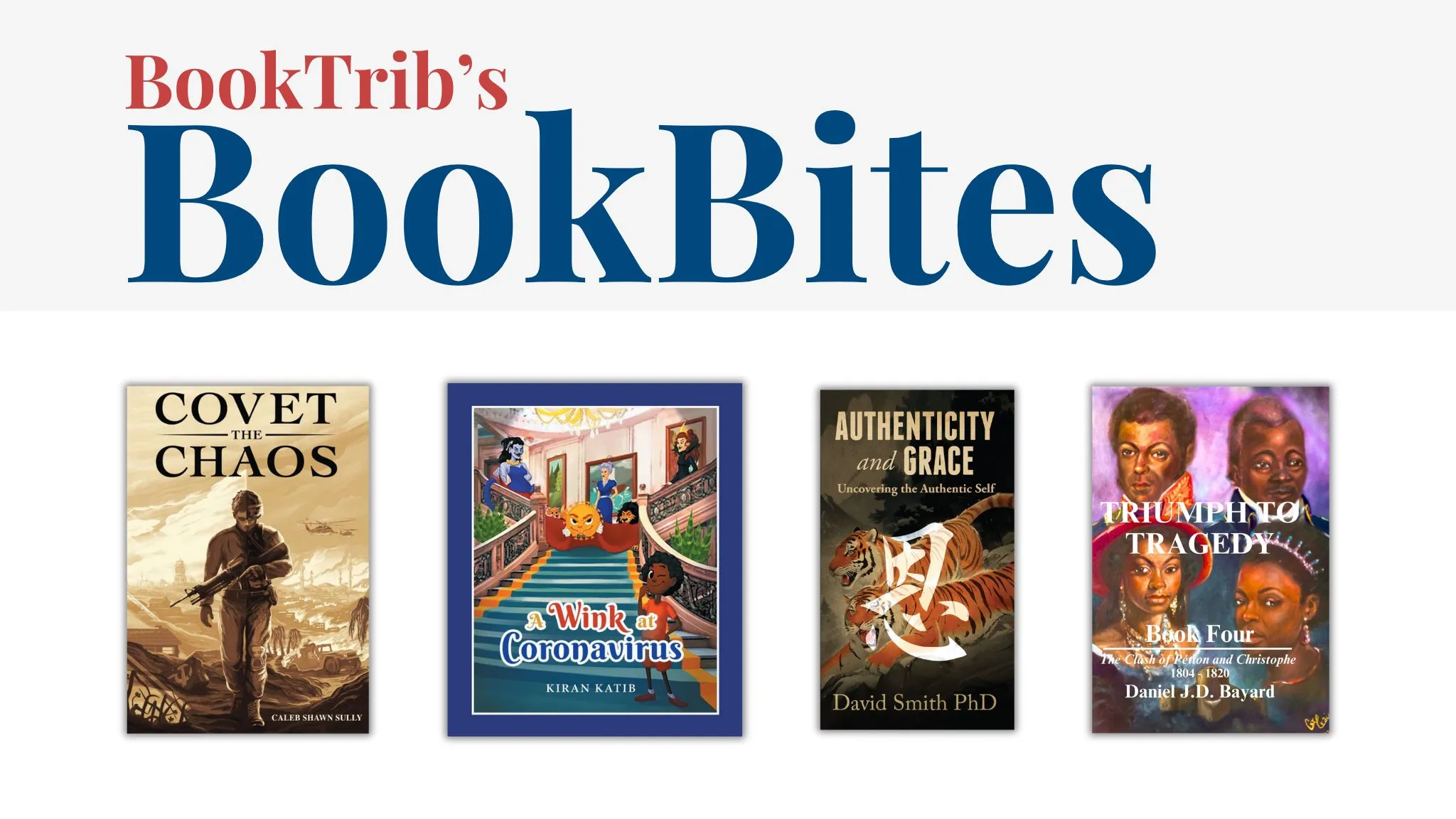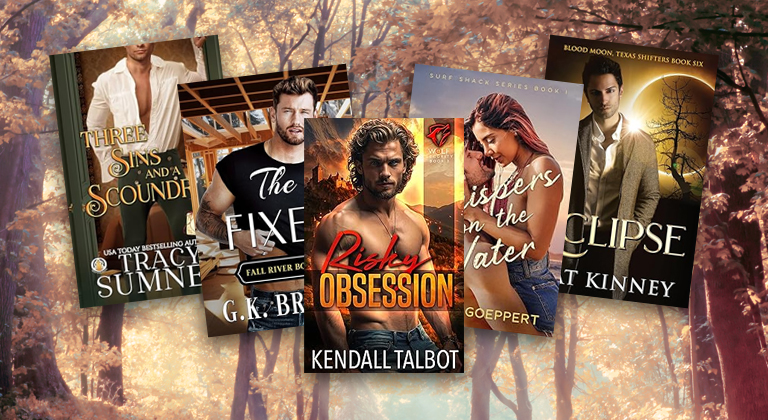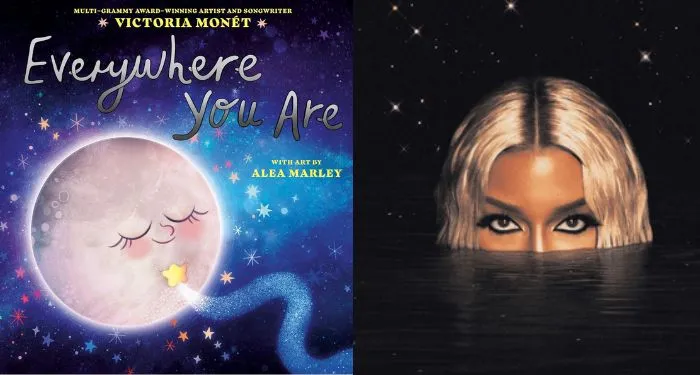Advertising and Marketing
Many authors wonder if upping their Facebook ads budget is the secret to unlocking better book sales. It’s a great question, but one without a straightforward answer. The truth is, while more money can amplify your ad performance, it’s not as simple as throwing cash at the problem. There are a variety of factors at play that could make – or break – your advertising success.
That’s why today, Ginger is here to once again guide us through the world of Facebook Ads, with a special focus on the effects of scaling up your budget. He’ll break down why a bigger budget can improve metrics, how it influences ad reach, and the risks to be mindful of along the way. But before you reach for that credit card, remember: while a larger budget might get you closer to bestseller status, it could just as easily drain your wallet quickly if you’re not careful.
One of the questions self-published authors ask me most frequently is: “How much should I spend on advertising?”
It’s a nuanced question, because there are a lot of variables that could go into the answer.
- Where are you advertising?
- What are you selling?
- What are your expectations as an author?
That final question is often the most difficult to answer, because a lot of self-published authors have an idea of what their version of “success” looks like (maybe a spot on the New York Times best-seller list, plus a big bundle of cash) but aren’t always aware of exactly how advertising plays into that – or how much it might cost for advertising to get them there.
Adding to that is the issue that not many self-published authors have a huge advertising budget to begin with. The best plan for many of us is to find an advertising strategy that works and “scale it up” with the profits (assuming there are any.)
Now, don’t get me wrong – this is a strategy that can work. It just takes time, and you also have to be advertising a product that is consistently profitable. This is especially true when you’re advertising books on Amazon, since Amazon doesn’t send you your royalty check until 60 days after the end of the month. You’ll need to be able to lay down 60 to 90 days of advertising budget ahead of time (which can really add up) and you should only do that if you have a reasonable expectation of getting that money back in the form of increased book sales.
But this isn’t the case for every self-published author, or for authors who have traditional publishing contracts. If you’ve got enough money to invest in some serious advertising up front, you could potentially leapfrog past that frustrating “scaling up” stage and go straight through to the best-seller stage – and that’s actually what a lot of the best-performing authors on Amazon already do.
Because when you start to spend real money on advertising, things happen – sometimes the sort of things us self-published authors only dream about!
I’ll cover what those things are in a moment, but I’m going to issue a caveat before you break out the emergency credit card and decide to become a high-roller yourself:
Bigger budgets can mean better results – but they can also provide a much quicker way to lose a lot of money fast if things go wrong. You should definitely have figured out a consistent way to advertise profitably before you embark on what I’m about to tell you – and you should never, ever advertise using money that you can’t afford to lose.
The Economy of Scale
Back in the early days of self-publishing, many successful authors didn’t do any advertising at all. When I started publishing my MC Romance series, I was able to launch a new book with a couple of newsletter promotions and see consistent sales coming in for months afterward because of how prominently my book was featured in that wonderful also bought ribbon of organically generated book suggestions.
However, since 2019, Amazon has incorporated more and more advertising into their homepages and product pages, and now it’s almost impossible to get organic visibility on Amazon unless you’re ranking in the best-seller lists, or spending money to get your book seen through advertising.
And making money from advertising isn’t as easy as it’s cracked up to be – there’s a reason why Don Draper and other Mad Men could afford their swanky offices on Madison Avenue. It’s not so much the actual advertising itself – although Advertising on Amazon has a fiendishly steep learning curve, while Facebook advertising will happy take as much money as you can throw at it without any guarantee of making a return.
The real trick to advertising is to sell something that people want.
The more people want whatever you’re advertising, the easier it is to do so profitably. Likewise, as an old advertising client of mine warned: “It doesn’t matter how much you spend on advertising if nobody wants to buy your product” and I know from bitter experience how true that is.
But if you do have a book, or series of books, that readers are eager to buy, you’ll quickly discover something else: The higher your advertising budget, the easier things get.
It might seem wildly unfair to those of us with limited budgets, but the more successful your advertising is, the more money you make from it.
Why does spending more money produce better results?
At its most basic, the reason you get more money with a larger advertising budget is scale.
Back when I wrote one of my articles about Attribution Tags, I tracked the return on investment when advertising my MC Romance series on Amazon and was happy to see that I was able to make a consistent profit. According to my Attribution Tags, I spent $160.42 on advertising during one month, and made $384.80 in royalties, which translated to $224.38 in profit.
Now, the remarkable thing was that my Attribution Tags clearly didn’t track every sale my advertising had generated, because I finished the month having made $520.16 more in sales than I would normally do when I wasn’t advertising – a “real” profit of $359.74. This is because the more you advertise, the more visible your book becomes even if that visibility can’t be tracked directly through Attribution Tags.
When I shifted to selling my books directly from my own website, rather than through Amazon, I noticed exactly the same thing. While I was able to track a profitable return on investment by the sales and downloads generated by my website, the more I advertised my books, the better they sold on Amazon – even though my ads didn’t even point to Amazon! In fact, my best month in direct sales this year also ended up being my best month for sales on Amazon.
At first that might not make any sense, but it does if you know anything about advertising. These days, we’ve been spoiled by ecommerce, which can track every sale from first-click to final-purchase, so we think we understand the entire scope and impact of our advertising.
But back in the “old days” of Don Draper and those Mad Men we mentioned earlier, there wasn’t any way to directly track how effective your advertising was – so you could only take a guess that it was working if you spent money on a billboard in Times Square and then saw a subsequent spike in sales.
As that old client of mine put it: “If you throw enough s–t against the wall, some of it will stick.”
Well, that philosophy holds true today – as demonstrated by the fact that when I was advertising my books for sale on my own website, I was also introducing thousands of new potential readers to my pen name, covers, and book titles – so the next time they were on Amazon, they looked me up!
It was old-school, raw-dog, throw-enough-s–t-at-the-wall advertising and yet just like in the era of Don Draper, it continued to work.
And that’s one of the reasons having a larger advertising budget works so hard for you, because the more people who see your ads, the more people know about your product – and hopefully, the more of them end up buying it, even if it’s not through the sales funnel you set up.
Of course, this tactic only generates a profit if you have a product people actually want to buy – but even if you don’t, it will still result in more sales, more awareness of your books and pen name, and a generally larger impact. A bigger advertising budget will always result in casting a wider net – even if you don’t end up catching enough fish to make it worth your while.
Taking It Even Further
But that’s not the only way in which a bigger budget can make your advertising more effective. It’s also worth noting that when you start to spend serious amounts of money, you change the playing field in more ways than just the number of people who see your ads.
This is especially true for those authors who still publish and sell their books on Amazon.
Advertising your books on Amazon can be a frustrating business. Because there’s no way to install a Facebook Pixel on your product page, you’re limited in the feedback you can get from your advertising – relying on Traffic Ads to direct people to your product page, and then Attribution Tags to track some (but not all) of the purchases and page reads that are generated as a result.
It’s also frustrating because around 90% of the readers you advertise to on platforms like Facebook are using their mobile phones, and Amazon has made it impossible to buy eBooks from their mobile app. It can seem like a fruitless endeavor sometimes!
But there are still advantages to using Amazon as your sales platform, even as more and more authors switch to direct sales. The biggest is the fact that Amazon is an entire ecosystem, and the impact your advertising has on your one book can create ripples across Amazon.com that could really help amplify your entire presence there as an author.
First and foremost, the “old ways” might not be as effective as they used to be, but even in an era in which Amazon homepages are inundated with paid advertising, organic suggestions generated by the Amazon algorithm are still around – and the more books you sell, the more you can take advantage of them.
Every time you sell a book to a new reader, your book gets fed into the also bought algorithm and will turn up on dozens or even hundreds of other product pages in that little Customers Who Bought This Book Also Bought… ribbon at the bottom of the page.
Likewise, the more books you sell, the more likely your books will be to appear in search results, especially if you have a good keyword strategy that uses keywords which get searched for frequently, but don’t have a lot of competition. Amazon will assume that your increase in sales means your books are more “relevant” for those keywords than other books, and offer them up more frequently as a result.
And relevance isn’t just a factor in search results. The more “relevant” Amazon thinks your book is, the more likely it is to offer you prime advertising spots on the Advertising for Authors platform.
With Advertising on Amazon, you have to place a bid for your book to have a chance to appear in one of the seven “slots” on an advertising ribbon (that ribbon of content with the little Sponsored sticker next to it.) But because Amazon makes more money from selling your book than from collecting advertising revenue, they’ll generally let authors “win” a spot in those slots for less than the highest bid if they think their book is “relevant” and more likely to sell.
Therefore, the more books you sell through advertising, the less you’ll pay for that advertising! And this is a factor that snowballs in effectiveness – sometimes offering you winning bids for just pennies, while other authors have to pay over a dollar.
And we’re not done yet!
The final and most effective way in which a significantly larger advertising budget can produce better results is if you can leverage it to get your book in the Top 100 rankings for any (or all) of the categories your book is featured in.
I write MC Romance books, for example, and when I launch my books I try to get them ranking in the Top 100 for Military Romance and Romantic Suspense. Once your book is featured in the Top 100, it suddenly provides exposure to thousands of new readers and can drive an incredible surge in sales – and if you’re willing to throw enough money at this, you can effectively “buy” that ranking.
According to Publisher Rocket, for example, it takes 162 sales of a book in the Military Romance category to get it appearing at #10 in the sales ranks. Initially, you might lose money by advertising enough to generate 162 sales in a single day – but if you can score that #10 spot, you’ll (theoretically) find yourself earning that money back many times over through all of the additional sales that visibility provides.
Some authors have an entire sales strategy on Amazon which involves them throwing hundreds of dollars of advertising budget out there every single day with the aim of getting their book into the best-seller ranks. They can spend upwards of $500 a day on Facebook ads, knowing they won’t make their money back directly, but hoping that the long-term impact of keeping that book in the Top 100 ranks soon earns them a return many times over.
It works! Sometimes!
But it’s also a strategy beyond the means of most of us self-published authors. To run ads at $500 a day for 90 days (which about how long you’d have to wait to receive a royalty check from Amazon) you’d require an advertising budget of $45,000 upfront. I don’t know about you, but I don’t have that kind of cash lying around!
But some publishing companies and a handful of wealthy self-published authors do – and they are able to generate massive returns on their investment by using sheer weight of numbers to brute-force the Amazon algorithm into working for them.
You can probably spot them when you go to the bestseller lists on Amazon.com – you’ll see the same names ranking again and again, sometimes with books that don’t have a huge number of reviews or any of the other clues that you’d normally associate with a best-seller.
Money talks, even with the written word.
It Works Better with Direct Sales, too!
Having a massive budget to advertise your books on Amazon might work really well for some authors, but spending that kind of money is out of reach for most of us self-publishers – in fact, it’s the reason why more and more of us are “getting off the Amazon hamster wheel” and experimenting with direct sales.
But having a significantly higher budget can also work in our favor when we’re trying to sell books from our own website, because bigger budgets can also change how effective our Facebook ads are.
This isn’t generally something that happens when you’re advertising books on Amazon, because you’re using Traffic Ads to direct potential readers to your Product Page. Traffic Ads generally deliver the same performance whatever your budget (and if you have different information about that, let me know – I’m just going with my years of experience on this one.)
However, when you’re selling books directly from your website, you’re better off using a different type of ad called a Sales Ad. Sales Ads use a Facebook Pixel to track the behavior of visitors to your website and report it back to Facebook. Therefore, when somebody buys something from your website, Facebook gets a message to find more potential customers exactly like them. This is why a bigger budget can generally lead to better metrics.
Here’s why:
- Increased Reach: A higher budget allows you to target more people, potentially reaching a wider audience that includes more potential customers.
- Better Ad Optimization: Facebook’s algorithm can learn more effectively with a larger budget. It can test different ad variations, targeting options, and placements to find the most effective combinations for your campaign.
- Lower Costs: While it might seem counterintuitive, a higher budget can sometimes lead to lower costs per click (CPC) and cost per sale (CPS). This is because Facebook can optimize your ads to reach people who are more likely to convert, which can lead to a higher return on investment (ROI).
- Ability to Run Multiple Ad Sets: A larger budget enables you to run multiple ad sets targeting different audiences or testing different ad creatives, which can help you identify the most effective strategies.
I have a really simple example of how this works from my own experiences. Back when I was advertising at $50 a day, I was generally guaranteed to get two sales of my book bundles every day (which was enough to generate a profit.)
When I ran exactly the same campaign at $100 a day, I averaged 6 sales of my book bundles every day – a 50% increase from what one might have expected by simply doubling the numbers.
I haven’t got there yet, but I’ll report back as I (hopefully) increase that budget even further!
Your Mileage May Vary
So whether you’re advertising your books on Amazon, or selling them directly, it’s very clear that a significantly higher budget (the sort that makes your bank manager go pale) has the potential to provide significantly better results.
However, it’s important to note that simply increasing your budget doesn’t always guarantee better results. Other factors like the quality of the books you’re trying to sell, the quality of your ad creative, your targeting options, landing page experience, and other factors also play a crucial role.
To maximize your results, consider:
- A/B Testing: Experiment with different ad creatives, targeting options, and budgets to see what works best for your campaign.
- Ad Quality: Ensure your ads are visually appealing, relevant to your target audience, and have a clear call to action.
- Landing Page Optimization: Whether you’re selling books from an Amazon Product Page or your own website, make sure your landing page is optimized for conversions, with a simple design and clear messaging.
- Tracking and Analysis: Continuously monitor your campaign performance with Attribution Tags or a Facebook Pixel, and make adjustments as needed to improve your metrics.
By combining a higher budget with effective strategies, you can definitely increase your chances of achieving better results with your Facebook Sales ads.
The Big Scary Warning!
All that being said, you should be aware of the dangers, too. Bigger budgets involve a lot more risk and when you’re talking about spending hundreds of dollars a day, you’re effectively gambling a lot of money on the success of your books.
So, first off, never ever spend money on advertising that you can’t afford to lose. Ever.
Facebook makes it especially easy to sink hundreds of dollars into ads every day and if something goes wrong with your strategy, you might find yourself burning through hundreds (thousands) of dollars before you can correct the problem.
For example, I mentioned earlier that an old client had warned me: “It doesn’t matter how big a budget you have if nobody wants to buy your product.” That’s absolutely true with eBooks. You could start running ads at $500 a day to get your book ranking on Amazon, but you’re screwed if it doesn’t. Make sure you only advertise books with a proven sales record, so you’re at least making an educated gamble about investing that much money.
Likewise, I recently wrote about breaking my Shopify store and wasting hundreds of dollars in advertising when nobody could buy my books. That set me back a few weeks – but it could have been way, way worse if I’d been advertising at a higher budget.
In short, there’s a reason why most self-published authors aren’t throwing hundreds of dollars at advertising every single day. It’s a risky strategy with an uncertain payoff. Yes, it definitely works for some best-selling authors – but I’d imagine they only found the confidence to start advertising at that level of intensity after doing the same groundwork that most of us are doing right now.
So my advice is to write great books. Have great covers. Pay somebody to write outstanding blurbs. Offer the best product you possibly can and use those as the foundations for your advertising strategy. Concentrate on the fundamentals and you’ll be able to increase your advertising budget in increments that you can feel secure about – and ultimately, that’s the safest way to get to the same level of success of those people with budgets the likes of which you and I can only dream about.
Be safe out there, fellow authors – but don’t be afraid to dream big.
Share this blog
About the Author

Ginger is also known as Roland Hulme - a digital Don Draper with a Hemingway complex. Under a penname, he's sold 65,000+ copies of his romance novels, and reached more than 320,000 readers through Kindle Unlimited - using his background in marketing, advertising, and social media to reach an ever-expanding audience.

















 English (US) ·
English (US) ·